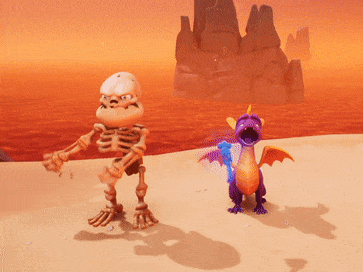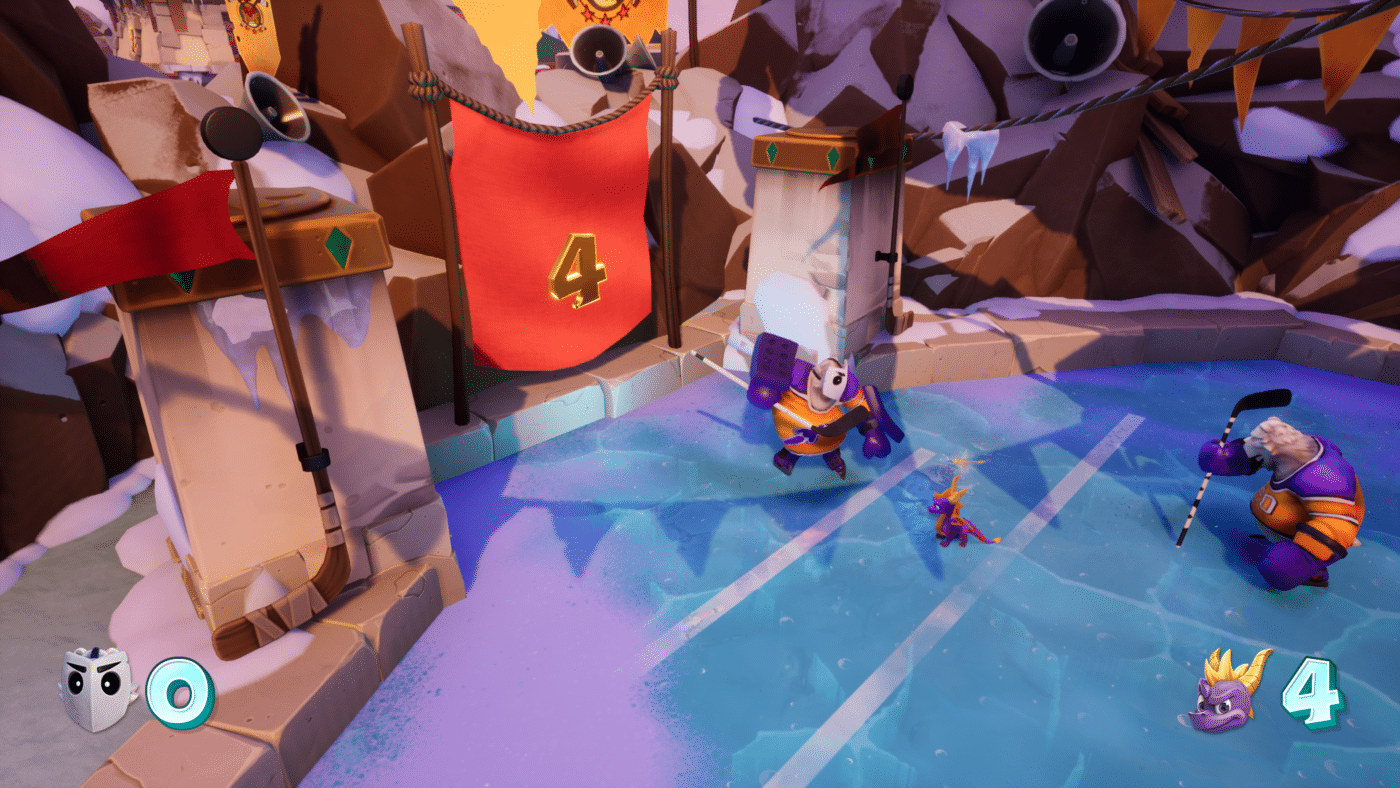Spyro: Reignited Trilogy is available on Playstation 4, Switch, XBox One, and Steam
I'm not typically wowed by “remastered” graphics. Unless they're truly transformative (in which case the game toes that fuzzy “remaster/remake” line), that's probably the third or fourth least-interesting thing going on. Video games are still games, first and foremost.
I didn't like Crash Bandicoot so much in 1999, and his 2017 makeover didn't change that.
Likewise, I had a blast with what little Spyro the Dragon I played back in that era. His 2018 remaster was likewise more of the same, and I gobbled it up.
Granted, “more of the same” is far from a turn-off for me. I keep going to bat for Pokémon, after all. Ratchet & Clank has my ongoing affection for being such a stable formula since 2002.
But while following the existing blueprint to the letter is safe, that hardly means it's an ironclad plan.
“That's the way we've always done it” is a poor guiding star for any design, after all.
Rusty Edges
Let's start with the obvious: that some of that chunky, PS1-era “difficulty” is left as-is.
Like how many of this platformer's more difficult jumps require a hovering maneuver. This requires you to use the bottom-most face button, then quickly swap to the topmost one without accidentally hitting anything between. You can't re-map these actions within the game, despite there being at least two shoulder buttons which go entirely unused.
It creates a gap between understanding what you should do and being able to just seamlessly do it. And of the many advances games made in two decades, maybe my favorite is how they've closed that gap and filed away the rough seams.
I so, so rarely have to wrestle with a controller nowadays. Spyro was an unfortunate exception.
And it likewise turns down another key element that the years have fine-tuned: clarity.
For one, the “guidebook” menus list what key collectibles you have remaining. They'll also have hint-like phrases describing how to obtain them – but only after they're safely in your claws. Not an especially useful guide, and one that seems easily remedied by making the descriptions visible from the get-go.
For a more practical example, Spyro 2 has an on-rails challenge that most players single out as a pain point. You can't see very far ahead given your speed, the hit-boxes of certain obstacles can be obtuse, and the course doubles back on itself to throw you off.
Rather than re-adjust any of these points, the game acknowledges your certain frustration by making this specific level worth an Achievement.
Chalk one up for preservation, one down for my blood pressure.

Granted, I'd be just as annoyed had they replaced the track with an easier version for the sake of it. If the goal is to recreate the original as we remember it, by all means build the same track. But three generations of experience should grant a more palatable way to deliver it, at least.
Polished Scales
This isn't to say that I didn't love a throwback Spyro, or that it brings nothing new to the table at all.
For one, Spyro is at least conscious of how nobody had really figured out how to make cameras work in a 3D game back then. Lookin' at you, Mario 64.
Sure, making the right analog control the camera in 2018 seems like a no-brainer. But having that change be virtually invisible is kind of the point, and miles ahead of a hypothetical release that didn't touch those wonky controls at all. Lookin' at you, All-Stars Mario 64.
Plus, while modern hardware power sells itself on rendering every strand of hair in a space marine's beard, it more than pulls its weight in cartoonish animation. Yes, I opened up this article by downplaying how much it matters moment-to-moment. But for an early Playstation game, back when everybody was throwing triangle-shaped spaghetti at the wall? It's the difference between a sock puppet and Kermit the Frog.
Playful eyes dart back and forth. A head-shake can seek lackadaisical rather than just a bit unhinged.
Also, they made a skeleton do that silly dance that all the kids are into. That has to count for something.

And this is the kind of marginal progress you'd expect to see in an “if it ain't broke, don't fix it” scenario. Spyro still mostly plays fine, it's more a matter of fresh upholstery and spackling over the cracks in the walls. But fixing some cracks makes it obvious where the remainder let cold air in.
Ever Anew
It's always such a tricky balance to hit, and getting so close is what makes Spyro stand out where others pass by with easy judgment.
The Last of Us Remastered was almost literally a technical upgrade of a game less than fourteen months old at the time.
Pokémon Brilliant Diamond & Shining Pearl wrap in a lot of convenience features from more recent games in the series, but upset their own balance by not planning around them. Divisive thumbs-up-thumbs-down on whether you mind facerolling a campaign.
But there's a long stretch in the middle, tinkering with an already-proven standby. A new touch-up could, fix one or two of its weak links, maybe should. But you get far enough down the list, and you have to open the question of what constitutes a positive fix as opposed to a more lateral revision.
Some imperfections are just that – imperfect. Some are part of the slightly-uneven look that gave those older models a wonky charm. One player might want them smoothed over, the other might want them kept faithfully in place. Even just re-releasing the original as-is will annoy some group that they're missing out on a potential upgrade, or that there's no point save making it available to more people.
Re-creating the past is a tricky business. Revising it triply so.
But for those few spots where the rough edges still poke through? Spyro hasn't done half-bad for himself.


